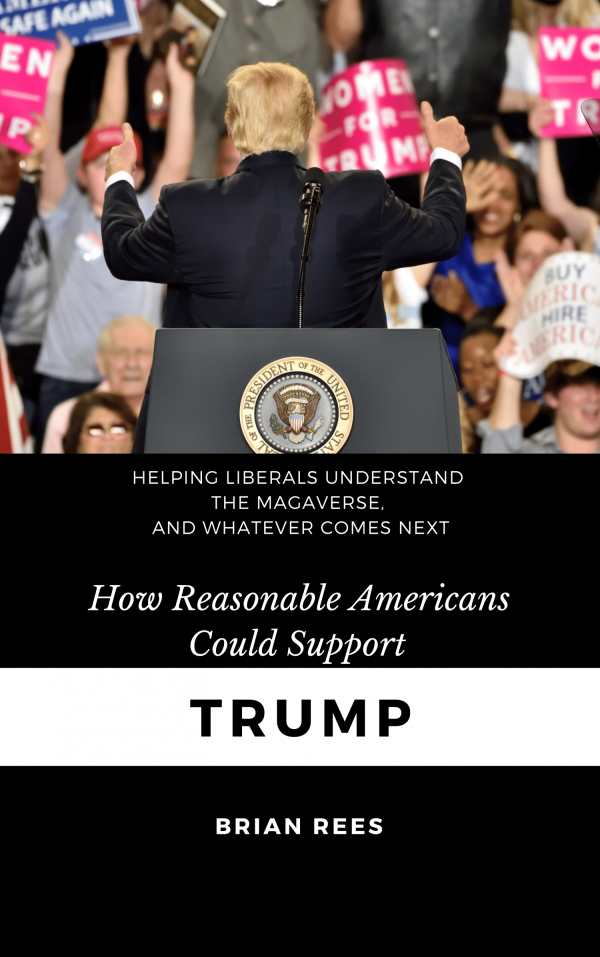How Reasonable Americans Could Support Trump
Helping Liberals Understand the MAGAverse, and Whatever Comes Next
How Reasonable Americans Could Support Trump is a good starting point for anyone who wishes to have honest conversations with acquaintances across the political aisle.
Brian Rees’s perspective-driven political science book How Reasonable Americans Could Support Trump examines how American politics became divisive—and suggests a path forward.
Inspired by experiences within his own family, Rees investigates the logic—or lack thereof—behind Americans’ political beliefs. He asserts that people have genetic and environmental predispositions towards certain positions, and posits that people rely on passion, rather than logic, to make their decisions. From this understanding, the book suggests possible remedies for the nation’s political divide, both on individual levels and nationwide.
This is an affable text that mixes personal anecdotes and opinions with news articles and academic texts. It compares the contents and formats of liberal and conservative arguments, and it identifies points on which it says that the forty-fifth president was correct. Its general perspective is that politics are not an issue that is as black and white as people claim.
Some of the book’s chapters end with brief summaries of their salient points. But the book is prone to treating politics as an abstraction, rather than acknowledging the real consequences of political decisions; for example, it states that hearing Donald Trump’s supporters’ views can harm the self-esteem of never-Trumpers, leaving them “feeling rejected,” but without acknowledging the increased risk of harassment, psychological harm, and physical violence that many people faced from the president’s loyalists.
Most of the book is dedicated to parsing how voters on the right and the left think about popular issues, supplemented by personal opinions on how such issues might be best resolved. But while the book speculates that people who already know about politics will be its main audience, it is also prone to presenting common knowledge as surprising revelations: for example, it argues that Donald Trump was correct to say “the system is rigged” because pro-corporate, anti-union legislation exists. Such information is supposed to encourage sympathy across the aisle, but in its familiarity even before Donald Trump’s first presidential run, it is less than convincing.
Toward the end, the book includes brief advice on how never-Trumpers can try to reach out to loved ones who voted for Donald Trump. This advice boils down to connection: reaching across the divide to treat the other side with respect, and asking intelligent, probing questions. This is a common-sense strategy that stands to lower the temperatures of political discourses, making the book a good starting point for anyone who wishes to have honest conversations with acquaintances from across the aisle.
The political science text How Reasonable Americans Could Support Trump emphasizes the critical importance of understanding and bridging the gap between Americans on the political left and right.
Reviewed by
Eileen Gonzalez
Disclosure: This article is not an endorsement, but a review. The publisher of this book provided free copies of the book and paid a small fee to have their book reviewed by a professional reviewer. Foreword Reviews and Clarion Reviews make no guarantee that the publisher will receive a positive review. Foreword Magazine, Inc. is disclosing this in accordance with the Federal Trade Commission’s 16 CFR, Part 255.

